I am the granddaughter of a woman who was in the Hitler Youth. That's neither here nor there, and I'm not particularly interested in publicly defaming her memory today. She was still a grandmother, decidedly not Richard Spencer-like and you probably wouldn't have punched her if you'd have met her; she cooked dinner, washed laundry, and like many German women tacitly participated in the sort of mundane everyday culture that ultimately dehumanizes then murders difference. Her daily life was remarkably similar to the daily lives of many Americans.
She wasn't evil. She didn't cower in the dark recesses of human consciousness. She was my grandmother. Racism, and the structures that uphold it to reinforce fear and resource hoarding, are rendered invisible when paired with seemingly benign daily routine. It is by changing our habits and our internal thought processes that we're able to individually address the racial biases that overall contribute to systemic abuse.
Growing up and in my professional sphere I've worked to expand how we can encounter ethnic and religious difference in ways that celebrate the complexities of human experience. When it comes to the politically charged topic of Israel, I've kept a distance, remaining silent because I default to doing work within my own community where I live to help people feel safe and heard rather than focusing on a country that is on another continent. I know in large part it is my family history that shapes my reserve: there truly is very little reason to add my thoughts to an already murky stew of conflicting thought and opinion. It's not easy, and I've lost friends over this effort to remain neutral.
But, this morning I received a message from a friend which served as a reminder that within this community there are cultural overlaps that by their very nature include the struggles of conflict in other regions. He asked why there hasn't been a more solid response of rebuke and condemnation by Jewish leadership to the massacre in Palestine Israel, which occurred on the cusp of the major Muslim holiday of Ramadan.
I cannot speak on behalf of others, but his straightforward and stern message calling me out on my own silence is taken to heart.
A few years ago I visited Israel for a conference, and not surprisingly I fell in love with the confluence of world culture within Jerusalem. Amusingly, it wasn't even on my radar that Christians love the area until I sat next to one on the plane who'd already made the trip multiple times. Up until that moment I'd primarily focused on Jerusalem as a site contested between two Abrahamic expressions, Judaism and Islam, but not until I listened to the woman excitedly tell me of all the pilgrimage spots she'd be traveling to did it belatedly dawn on me how many people feel a deep personal connection to this land regardless of what passport they hold. Jerusalem truly is a world site. Regardless of which political body pretends control of it, the site remains sacred on a global scale. Nobody can claim it because everybody claims it.
And, of course, it isn't only the three major Abrahamic traditions who call the area home. Bahá'í, Bedouins, Druze, Kemetic pagans, atheists, Samarian Roma, and more also worship in the region according to their inspirations. When in the Old City, I watched Korean Christians lie prostrate in the Holy Sepulchre and I visited the courtyard of an Ethiopian Coptic church. I walked the streets with a Mizrahi Jewish tour guide whose family came to Israel after being expelled from Iraq decades ago. He took me to a rooftop and pointed out the wall in the distance separating people from one another. He was not proud of the wall. I passed a memorial to the Armenian genocide. When I stood with other women and put my hand on the surface of the Kotel, I felt the electric buzz of centuries spinning through my veins and I couldn't find the words to explain the euphoria until I sat with my eyes closed only to open them and see a white dove perched by a chair, breathing its peace.
Israeli culture is uniquely an amalgam of world cultures coalescing in one geographically tight area. Yemeni, Iraqi, Moroccan, Tunisian, Polish, Russian, Turkish, American, French, Ugandan, and Ethiopian Jews hold passports. The list goes on and on. I saw a reconstruction of an Indian Synagogue next to a reconstruction of a Dutch Sephardic Synagogue. To call the country names like 'Israhell' does a gross disservice to the creativity with which multiple cultural expressions manage to live together with limited resources.
And, adding to all of this are the Palestinian people who are not only denied access to this sacred city but are denied easy access to basic resources like water. During my short time there I also saw multiple checkpoints, numerous machine guns, and long unnecessary lines for families to get from A to B on their daily routine.
One of my longest and most meaningful conversations happened with a man in the courtyard of the Al Aqsa mosque, who was proselytizing on behalf of Islam. He spoke English, and spent his days with his fellow co-religionists chatting with tourists and handing out free Korans. We talked a long time. There was no reason for him to give me as much of his time as he did, but honestly I wanted to stay on the platform as long as I could and so welcomed the conversation. The winter sun was shining just perfectly over everything, a women's group was studying Koran under a nearby awning, and awed tourists were snapping selfies before being shuffled off by the guards tasked with keeping the flow of people moving along.
At one point I said to him in all awe and sincerity, "You live in the most beautiful place in the world. You truly are lucky to live here." And, he agreed. But, before he nodded his agreement, I saw a small flicker of another emotion, a nanosecond of despair and sadness that he couldn't conceal. Yes, he lived in the most beautiful place in the world and yes he was lucky to be there every day but yet he could only live as a visitor in an area his family had likely lived for countless generations. Was it luck to be placed in bodily danger every day by an exclusionary government? What does luck mean in this context? Unlike the millions of people who travel thousands of miles to stand where he does, he breaths the sacredness every day. And, he shares the beauty of his religion every day with those able to listen. In that sense it is truly a lucky life, regardless of bodily harm. And, yet, there are those who would claim he ought not to be allowed to participate in his own lived experience; they'd rather dismiss him as a terrorist or a fanatic. We talked awhile longer, and I almost signed a conversion statement but confessed to him that I would have mostly signed it primarily so that I could see inside the beautiful mosque (which is only available to adherents of Islam). That didn't feel like an honest reason to sign a statement of belief, and he understood my position. I didn't commit to a new religion that day, but I did expand my library with the English language Koran he gave me.
When I look at pictures of the embassy dedication ceremony this week, I see none of the cultural vibrancy that marks the city life in Jerusalem. I see no evidence of the efforts to coexist that people of myriad cultures expend to live together while often uncomfortably navigating an intentionally striated and racially biased social hierarchy. I see none of the collective sacred energy that has transformed this tiny map dot into the global center that it is. I see none of this, but I do see the same sort of *mundane everyday culture that ultimately dehumanizes then murders difference* that characterized the normalcy of everyday racism influencing my grandmother's early life during the Hitler Years. I can't not see it. I don't know any Jewish Americans who approve of this new embassy, and yet here it now stands mowing down the efforts of people to acknowledge the humanity of Palestinians who live in the region and deserve recognition. To kill and injure so many people is an inhumane act of racism and religious intolerance. My heart goes out to those touched by the tragedy.
We can find grounding in the notion that as humans we are entitled to a relationship with the earth and elements under our feet. I'm not talking about ownership or submission, but relationship. We live with some portion of our body connected to the earth at all times, and it is our spiritual birthright to live in connection with the air, water, earth, and fire that sustains us. To foster and nurture that relationship, we must gain understanding of the indigenous and ancestral relationships experienced by the people of the areas where we live, and to treat these relationships with the sacred respect they deserve. This is true whether our feet are rooted in Oregon or in Palestine or in Israel. When we treat the land beneath our feet as sacred, then all places become The Most Beautiful Place In the World.
She wasn't evil. She didn't cower in the dark recesses of human consciousness. She was my grandmother. Racism, and the structures that uphold it to reinforce fear and resource hoarding, are rendered invisible when paired with seemingly benign daily routine. It is by changing our habits and our internal thought processes that we're able to individually address the racial biases that overall contribute to systemic abuse.
Growing up and in my professional sphere I've worked to expand how we can encounter ethnic and religious difference in ways that celebrate the complexities of human experience. When it comes to the politically charged topic of Israel, I've kept a distance, remaining silent because I default to doing work within my own community where I live to help people feel safe and heard rather than focusing on a country that is on another continent. I know in large part it is my family history that shapes my reserve: there truly is very little reason to add my thoughts to an already murky stew of conflicting thought and opinion. It's not easy, and I've lost friends over this effort to remain neutral.
But, this morning I received a message from a friend which served as a reminder that within this community there are cultural overlaps that by their very nature include the struggles of conflict in other regions. He asked why there hasn't been a more solid response of rebuke and condemnation by Jewish leadership to the massacre in Palestine Israel, which occurred on the cusp of the major Muslim holiday of Ramadan.
I cannot speak on behalf of others, but his straightforward and stern message calling me out on my own silence is taken to heart.
A few years ago I visited Israel for a conference, and not surprisingly I fell in love with the confluence of world culture within Jerusalem. Amusingly, it wasn't even on my radar that Christians love the area until I sat next to one on the plane who'd already made the trip multiple times. Up until that moment I'd primarily focused on Jerusalem as a site contested between two Abrahamic expressions, Judaism and Islam, but not until I listened to the woman excitedly tell me of all the pilgrimage spots she'd be traveling to did it belatedly dawn on me how many people feel a deep personal connection to this land regardless of what passport they hold. Jerusalem truly is a world site. Regardless of which political body pretends control of it, the site remains sacred on a global scale. Nobody can claim it because everybody claims it.
And, of course, it isn't only the three major Abrahamic traditions who call the area home. Bahá'í, Bedouins, Druze, Kemetic pagans, atheists, Samarian Roma, and more also worship in the region according to their inspirations. When in the Old City, I watched Korean Christians lie prostrate in the Holy Sepulchre and I visited the courtyard of an Ethiopian Coptic church. I walked the streets with a Mizrahi Jewish tour guide whose family came to Israel after being expelled from Iraq decades ago. He took me to a rooftop and pointed out the wall in the distance separating people from one another. He was not proud of the wall. I passed a memorial to the Armenian genocide. When I stood with other women and put my hand on the surface of the Kotel, I felt the electric buzz of centuries spinning through my veins and I couldn't find the words to explain the euphoria until I sat with my eyes closed only to open them and see a white dove perched by a chair, breathing its peace.
Israeli culture is uniquely an amalgam of world cultures coalescing in one geographically tight area. Yemeni, Iraqi, Moroccan, Tunisian, Polish, Russian, Turkish, American, French, Ugandan, and Ethiopian Jews hold passports. The list goes on and on. I saw a reconstruction of an Indian Synagogue next to a reconstruction of a Dutch Sephardic Synagogue. To call the country names like 'Israhell' does a gross disservice to the creativity with which multiple cultural expressions manage to live together with limited resources.
And, adding to all of this are the Palestinian people who are not only denied access to this sacred city but are denied easy access to basic resources like water. During my short time there I also saw multiple checkpoints, numerous machine guns, and long unnecessary lines for families to get from A to B on their daily routine.
One of my longest and most meaningful conversations happened with a man in the courtyard of the Al Aqsa mosque, who was proselytizing on behalf of Islam. He spoke English, and spent his days with his fellow co-religionists chatting with tourists and handing out free Korans. We talked a long time. There was no reason for him to give me as much of his time as he did, but honestly I wanted to stay on the platform as long as I could and so welcomed the conversation. The winter sun was shining just perfectly over everything, a women's group was studying Koran under a nearby awning, and awed tourists were snapping selfies before being shuffled off by the guards tasked with keeping the flow of people moving along.
At one point I said to him in all awe and sincerity, "You live in the most beautiful place in the world. You truly are lucky to live here." And, he agreed. But, before he nodded his agreement, I saw a small flicker of another emotion, a nanosecond of despair and sadness that he couldn't conceal. Yes, he lived in the most beautiful place in the world and yes he was lucky to be there every day but yet he could only live as a visitor in an area his family had likely lived for countless generations. Was it luck to be placed in bodily danger every day by an exclusionary government? What does luck mean in this context? Unlike the millions of people who travel thousands of miles to stand where he does, he breaths the sacredness every day. And, he shares the beauty of his religion every day with those able to listen. In that sense it is truly a lucky life, regardless of bodily harm. And, yet, there are those who would claim he ought not to be allowed to participate in his own lived experience; they'd rather dismiss him as a terrorist or a fanatic. We talked awhile longer, and I almost signed a conversion statement but confessed to him that I would have mostly signed it primarily so that I could see inside the beautiful mosque (which is only available to adherents of Islam). That didn't feel like an honest reason to sign a statement of belief, and he understood my position. I didn't commit to a new religion that day, but I did expand my library with the English language Koran he gave me.
When I look at pictures of the embassy dedication ceremony this week, I see none of the cultural vibrancy that marks the city life in Jerusalem. I see no evidence of the efforts to coexist that people of myriad cultures expend to live together while often uncomfortably navigating an intentionally striated and racially biased social hierarchy. I see none of the collective sacred energy that has transformed this tiny map dot into the global center that it is. I see none of this, but I do see the same sort of *mundane everyday culture that ultimately dehumanizes then murders difference* that characterized the normalcy of everyday racism influencing my grandmother's early life during the Hitler Years. I can't not see it. I don't know any Jewish Americans who approve of this new embassy, and yet here it now stands mowing down the efforts of people to acknowledge the humanity of Palestinians who live in the region and deserve recognition. To kill and injure so many people is an inhumane act of racism and religious intolerance. My heart goes out to those touched by the tragedy.
We can find grounding in the notion that as humans we are entitled to a relationship with the earth and elements under our feet. I'm not talking about ownership or submission, but relationship. We live with some portion of our body connected to the earth at all times, and it is our spiritual birthright to live in connection with the air, water, earth, and fire that sustains us. To foster and nurture that relationship, we must gain understanding of the indigenous and ancestral relationships experienced by the people of the areas where we live, and to treat these relationships with the sacred respect they deserve. This is true whether our feet are rooted in Oregon or in Palestine or in Israel. When we treat the land beneath our feet as sacred, then all places become The Most Beautiful Place In the World.
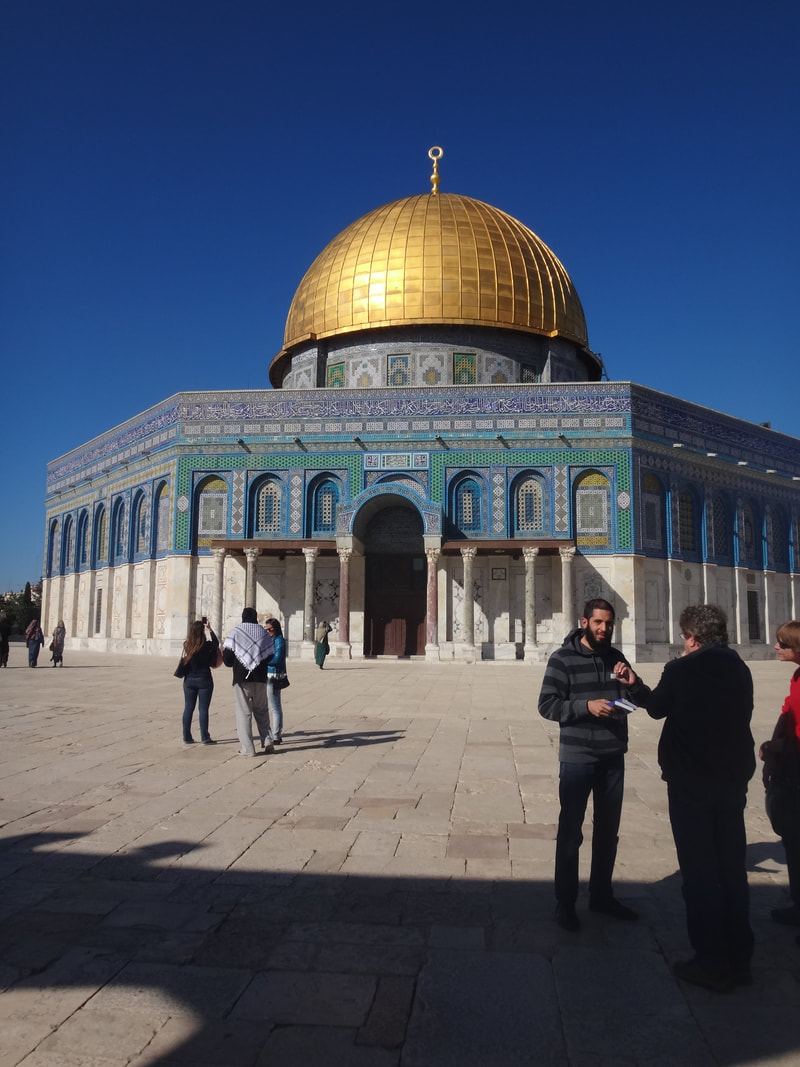
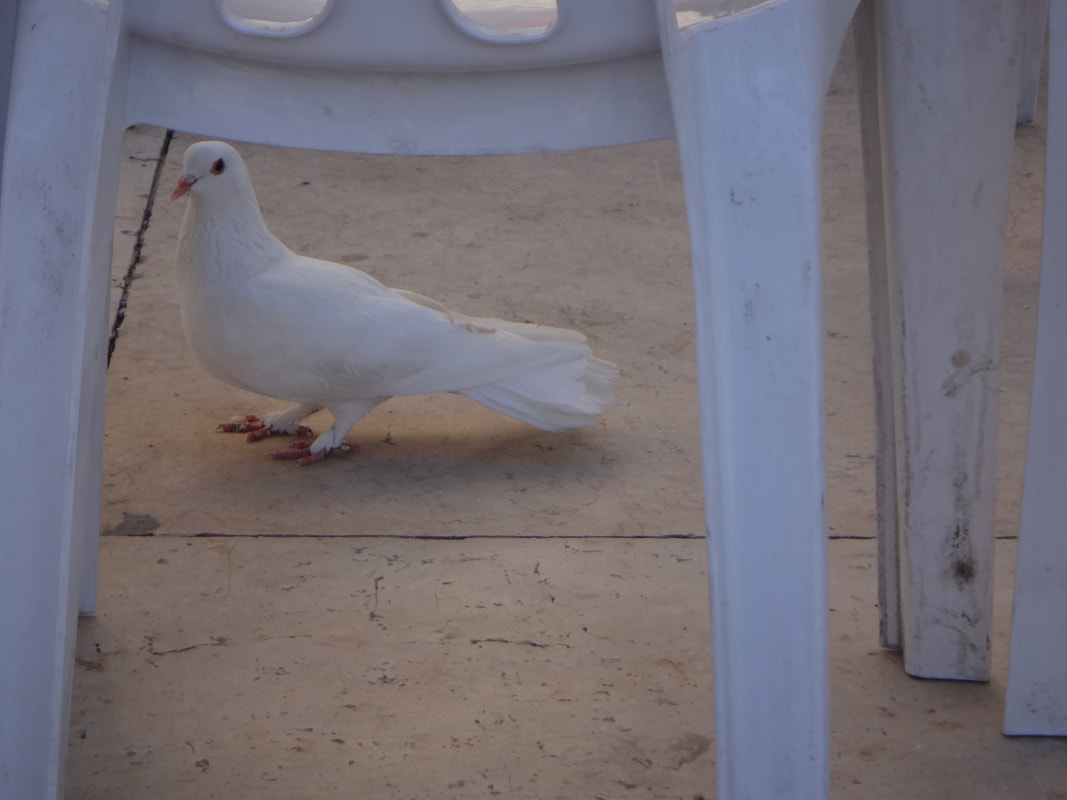
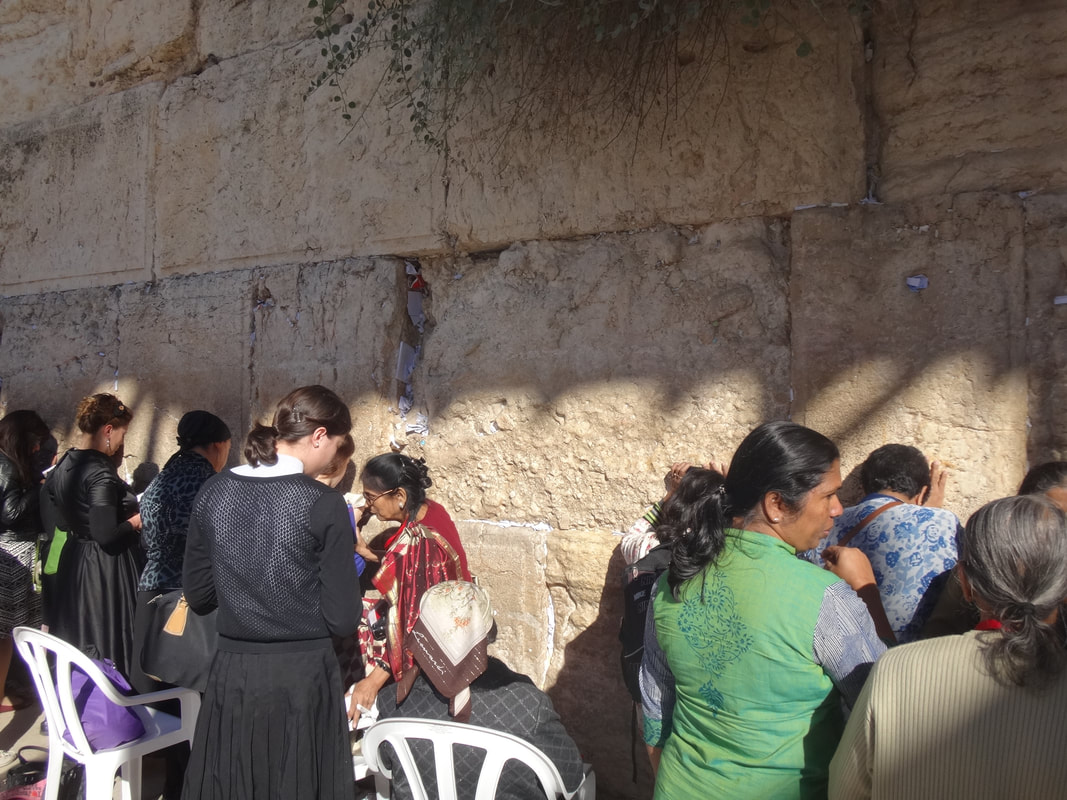
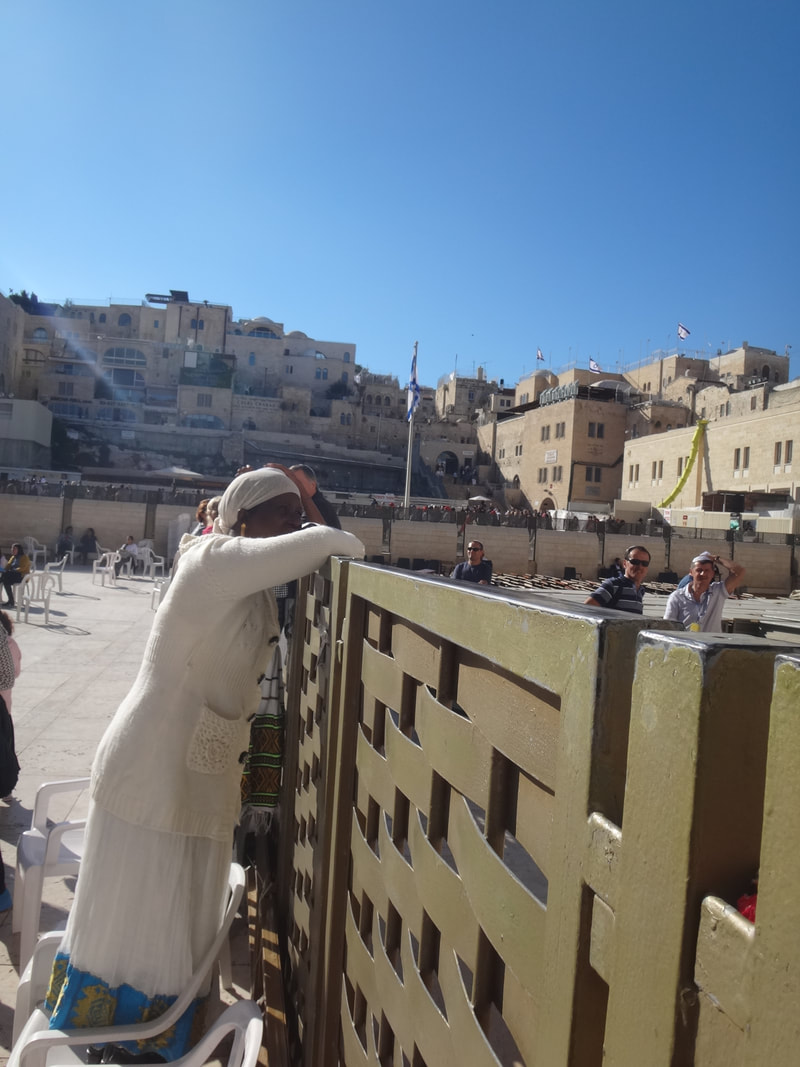
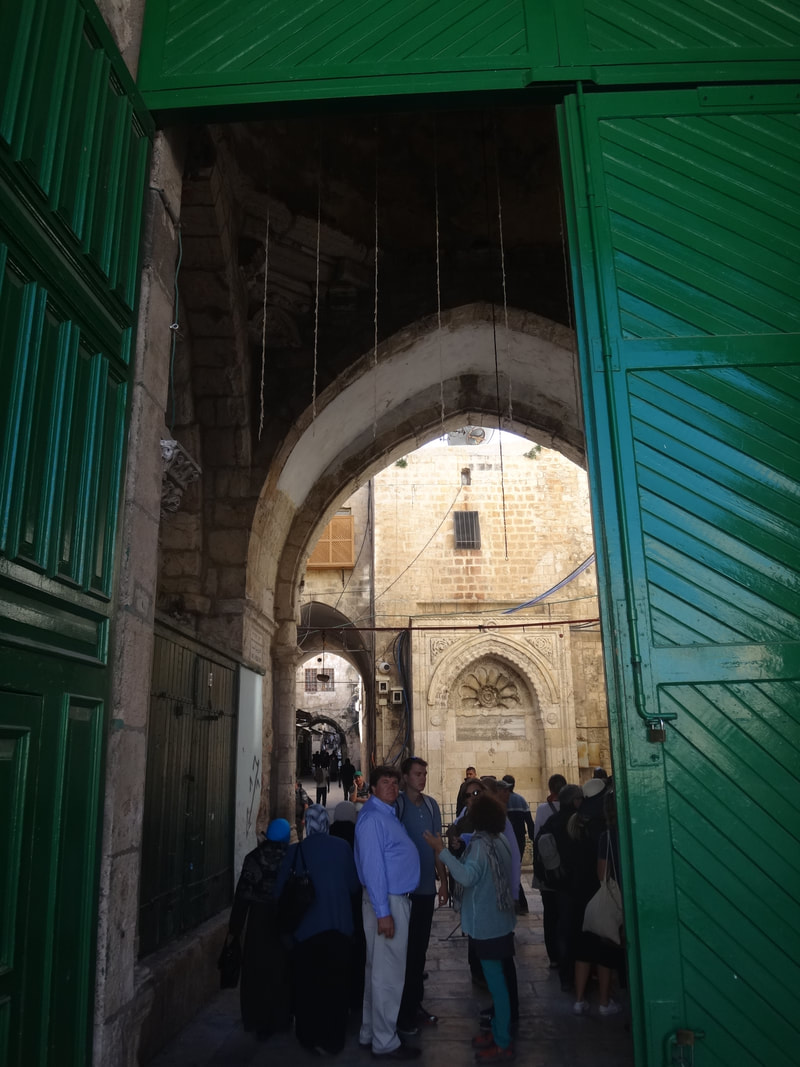
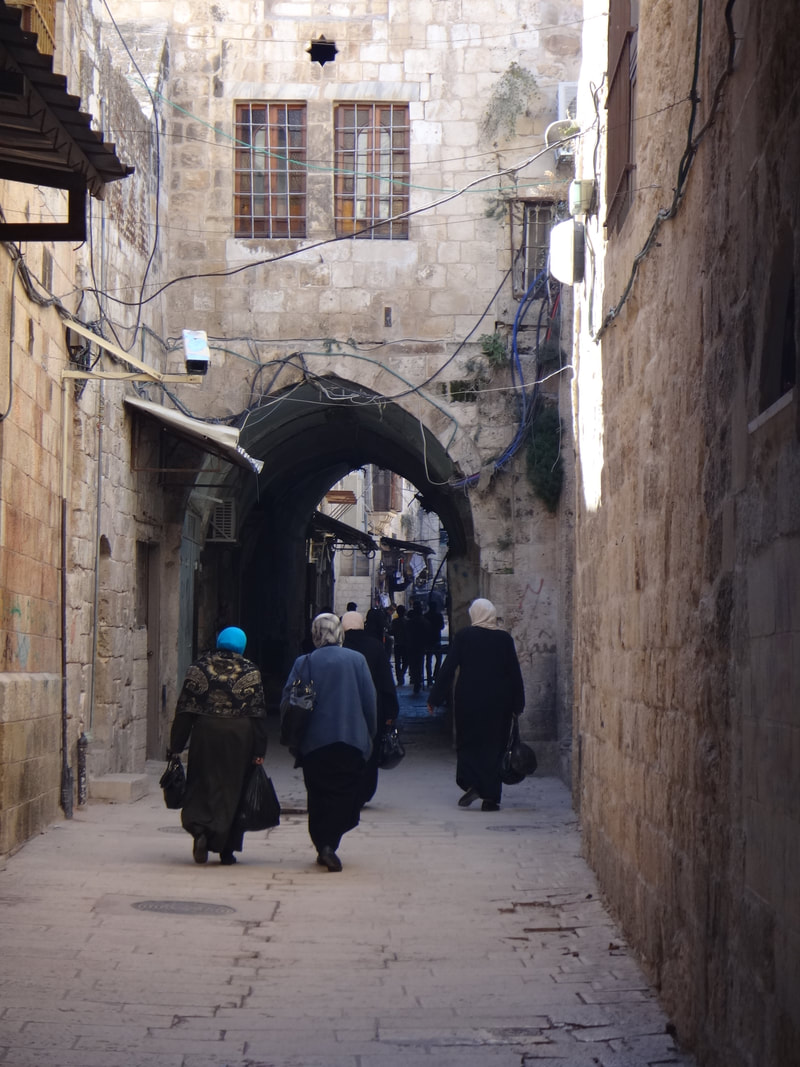
 RSS Feed
RSS Feed